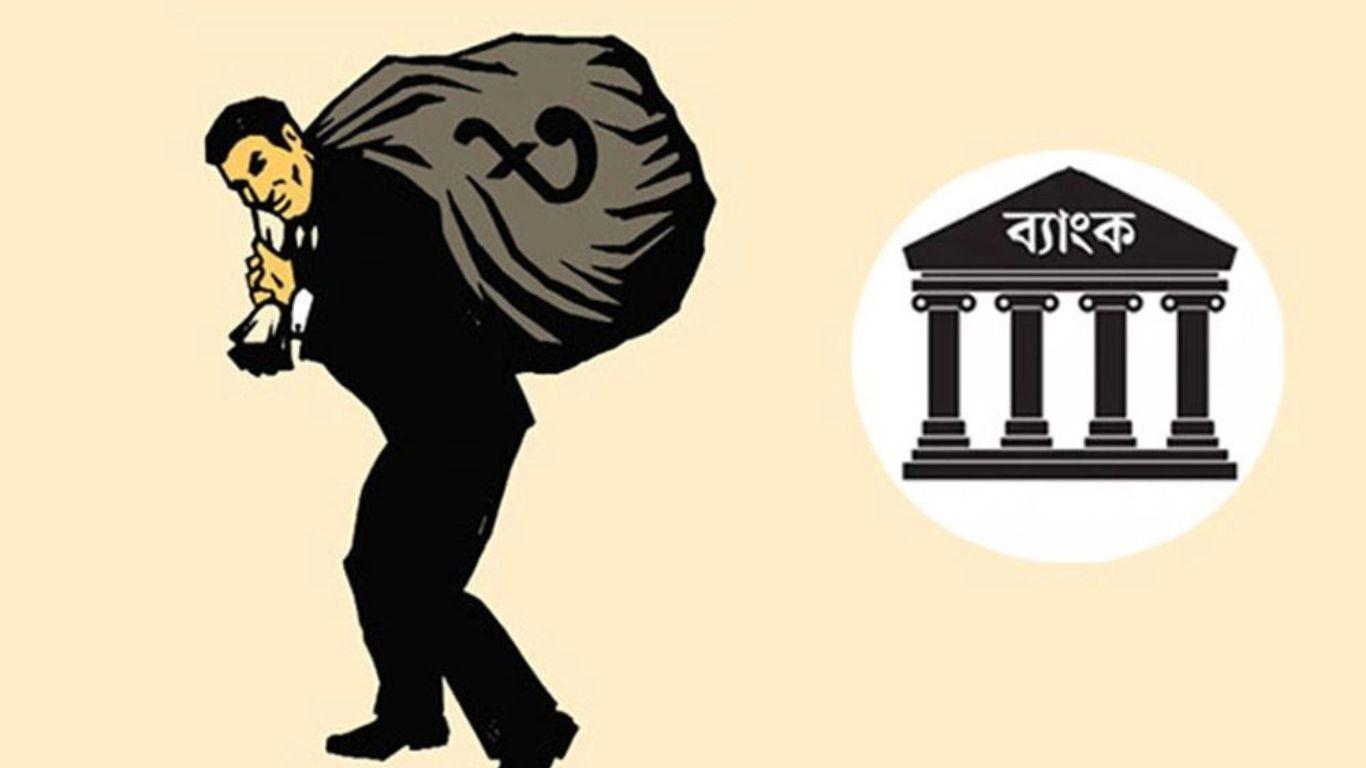Tk29,000 crore stuck in the accounts of intentional defaulters
Daily Sun Report, Dhaka
Published: 06 Oct 2025

Photo: Collected
Business loans were taken, but borrowers with the ability to repay are deliberately defaulting, using various excuses to evade repayment while diverting the funds for their own use.
These are intentional defaulters, and they are now a major thorn in the banks’ side. According to the latest data from Bangladesh Bank, there are currently 3,483 intentionally defaulting borrowers in the country, with a total outstanding amount of Tk28,878 crore stuck in their accounts.
The central bank has stated that banks have been instructed to take legal action against customers who deliberately fail to repay their loans. Banks are working within that framework. However, not all banks have yet submitted their lists of intentional defaulters to Bangladesh Bank. Sources say that intentional defaulters are most numerous in state-owned banks.
Yet, most state-owned banks have still not sent in these lists. Some banks are not even inspecting the borrowers’ businesses to classify them as intentional defaulters, despite being asked to do so.
According to the latest figures from Bangladesh Bank, as of the end of June, there were 7,605,923 bank borrowers in the country. Among them, 1,409,548 borrowers have failed to repay their loans and are now listed as defaulters. That means about 19% of total borrowers are now defaulters.
Experts say that due to irregularities in the banking sector, political influence, and the easy availability of loan rescheduling, the number of intentional defaulters is increasing day by day. Many large business enterprises are reluctant to repay loans, while others are taking refuge in the courts to delay repayment.
A senior official of Bangladesh Bank said, “The main challenge now is to hold intentional defaulters accountable. It is these borrowers who are creating liquidity crises in the banking sector and hindering the distribution of new loans. Even though they have the capacity, they are not repaying their loans. As a result, defaulted loans are increasing. Gradually, banks are weakening, and depositors, banks, other borrowers, and the government are all being affected.”
Bangladesh Bank has already sent a list of intentional defaulters to commercial banks and instructed that no new loans, guarantees, or trade credits should be given to these individuals. This process started in 2024. So far, only 15 banks have submitted their lists of identified intentional defaulters.
Economic analysts believe that unless strict action is taken against intentional defaulters, it will be difficult to restore stability in the banking sector. If the culture of default continues in this manner, public confidence will decline, putting the entire economy at risk.
According to the latest report of Bangladesh Bank, as of June 2025, the total amount of bank loans stood at Tk20,44,396 crore. Of this, Tk6,67,115 crore has become non-performing, accounting for 33% of total loans.
Economists say that over the past 16 years, politically influential people have taken loans worth thousands of crores from banks and transferred them abroad. Many of them are now absconding and unable to repay their loans.
Dr. Shah Md. Ahsan Habib, Research Director at the Bangladesh Institute of Bank Management (BIBM), told Kaler Kantho, “Outstanding loans should be divided into two categories. Those who have intentionally defaulted will be in one group, and those who have defaulted unintentionally should be helped to keep their businesses operational. There is no precedent in Bangladesh for bringing defaulters under legal accountability. This leads many to think that loans need not be repaid. There is no alternative to bringing them under legal jurisdiction. In Nepal, the names of defaulters are publicly displayed on streets and on television, creating social pressure. We should adopt a similar approach.”
Syed Abu Naser Bakhtiar Ahmed, Chairman of Agrani Bank, told Kaler Kantho, “It is very difficult to identify who is an intentional defaulter. They often exploit legal loopholes. Court cases can drag on for up to 10 years. Whoever comes to power in the future must keep this in mind. Last October, Agrani Bank tried to create social pressure against major defaulters. We stood in front of the bank in Chittagong, but had to withdraw. I have heard that some private banks have managed to recover money this way, but we could not.”
He added, “Despite this, the recovery process at Agrani Bank has not stopped. Under Bangladesh Bank’s guidelines, rescheduling is ongoing. Borrowers paying a 2% down payment are being regularized. Those giving an additional 2% as a compromised amount can use it if they have a limit. In the past year, we have recovered about 50 billion BDT in cash.”
According to data, Fourth Generation Union Bank has identified 119 intentional defaulters, with an outstanding amount of Tk6,299 crore. The bank has repeatedly tried but failed to recover these loans. Before the caretaker government came into power, this bank was owned by Chittagong-based S. Alam Group. The interim government dissolved its board and formed a new one, gradually revealing the bank’s defaulters. As of December 2024, Union Bank had Tk24,835 crore in non-performing loans, which is 87.98% of total loans.
Meanwhile, First Security Islami Bank has identified 127 intentional defaulters. Most of them are deliberate defaulters, with an initially estimated total of Tk12,500 crore in outstanding intentional loans.

